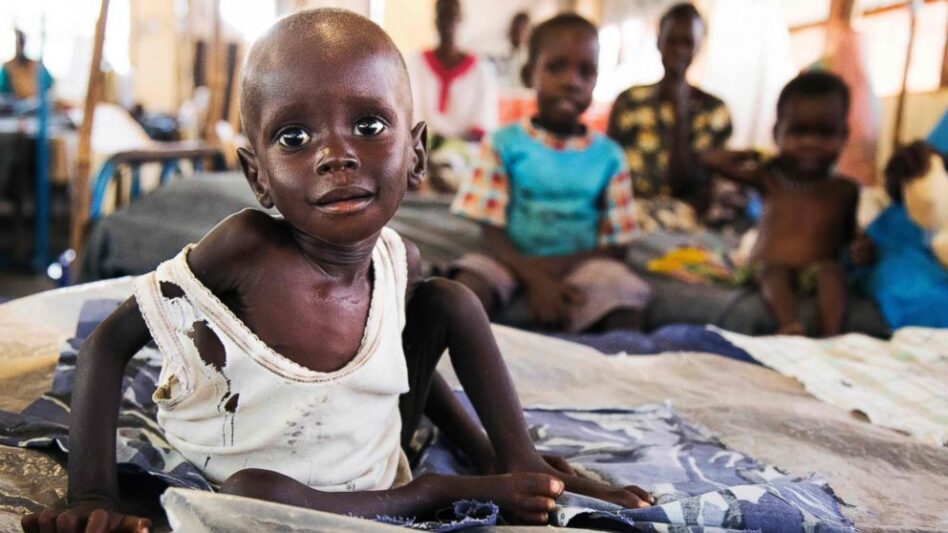By Teo Bong Kwang and Kok Eu Jin
CLIMATE change and global warming are buzz words now. However, many businesses, especially the small and medium sized enterprises are not too concerned about them. Most of them do not see the connection between global warming and the well-being, especially profitability of their businesses.
Some even regard it as part of the Western world’s continuous efforts in trying to impose their will on less developed countries. It is a generally held belief that implementing measures for sustainability may affect their bottom line.
Furthermore, many businesses are still not aware of the Government’s initiatives and incentives provided in promoting sustainable-ready business models.
Here, we would set out the various frameworks, programmes and incentives which businesses may leverage upon to become more sustainable and future proof.
It is common knowledge that global warming is linked to carbon-emissions. And traditional fossil energy accounts for more than two-thirds of all carbon emissions. It is also common knowledge that traditional energy sources are fast depleting.
We need to ensure that all the resources which make our life now and in the future comfortable are sustainable. In simple terms, to be sustainable is to meet the needs of the present without endangering the future generations’ ability to meet theirs.
Thus, the reason and urgency to replace traditional energy with sustainable or green energy is apparent.
Given this context, it is only to be expected that the Malaysian Government has prioritized the promotion of green technology and generation of sustainable energy.
What is sustainable energy?
“Sustainable energy” encompasses two components: renewable energy (RE) and energy efficiency (EE).
The Malaysian Government has recently announced a new target of achieving 31% of RE by 2025 which is 11% more compared to the already ambitious target set by the previous Pakatan Harapan Government.
As for EE, we have previously targeted of reducing consumption of energy by 8% in 2025 from the 2005 level. To achieve this goal, incentive such as the Save 2.0 programme was introduced by the Energy and Natural Resources Minister which aims to encourage household consumers to practice energy efficient practices while contributing to energy consumption savings and lower electricity bills.
According to previous announcement made by MESTECC (Ministry of Energy, Science, Technology, Environment & Climate Change), Malaysia has already reduced carbon emission by 33%, which places Malaysia on a consistent path to fulfil its obligation under the Paris Agreement to reduce 45% of carbon emission by the year 2030.
It is worth noting that RE currently contributes 18% to Malaysia’s energy mix, while hydropower accounts for 86% of renewal capacity.

Legal frameworks and policies for promoting sustainable energy
To achieve the above-stated targets, the Malaysian Government has put in place several regulatory frameworks and policies to promote investments from private sector in utilising “green technology” in the generation of sustainable energy.
In 2009, the Malaysian Government introduced the National Green Technology Policy with the objective of accelerating the national economy and promoting sustainable development.
In this Policy, “green technology” is defined as products, equipment or system that minimise degradation of the environment, has zero or low greenhouse gas emission, safe for use and promotes healthy and improved environment for all forms of life, conserve the use of energy and natural resources, and promotes the use of renewable resources.
In 2010, the Malaysian Government introduced several fiscal incentives for green technology investment and RE during the 10th Malaysian Plan which ultimately led to the enactment of the Renewable Energy Act 2011 (REA) and Sustainable Energy Development Authority Act 2011 (SEDA).
The REA introduced the “feed-in tariff” mechanism which makes it mandatory for distribution licensees such as the national utilities company Tenaga Nasional Bhd to purchase electricity generated from renewable resources such as solar energy.
Pursuant to SEDA, a statutory body, called Sustainable Energy Development Authority is established. Its principal function is to develop sustainable energy and promoting policy on RE.
Current incentives and programmes introduced by the Gov’t
To encourage investment from private sector in green technology and to promote generation of RE, the Malaysian Government has introduced many incentives and programmes, including the following:
Net Energy Metering (NEM): A mechanism which enables excess solar energy produced to be exported back to the grid in return for credit which can be used to offset against electricity bills for energy consumed.
A new NEM 3.0 programme where three types of NEM consumers have been introduced: (i) NEM Rakyat (for domestic consumers); (ii) NEM GoMen (for Government ministries and entities); and (iii) NEM Nova (for commercial sectors).
What is important under NEM 3.0 is that the consumers under NEM Rakyat and NEM GoMen category are able to export excess energy back to the grid on a “1-to-1” offset basis with a credit rolling period of 12 months, whilst NEM Nova can export excess energy back to the grid on a system marginal price with a credit rolling period of one month or it may offset excess electricity by distributing it through up to three different electricity bill accounts.
Peer to peer electricity trading pilot (P2P pilot)
In addition to the NEM scheme, SEDA has completed a P2P pilot project to address the increase of distributed generation in Malaysia which allows owners of distributed energy resources the option to sell their excess energy to local utility or other consumers.

Large scale solar programme
Solar energy remains the largest contributors of RE. The Malaysian Government has extended the public tender programme for large scale solar programme (LSSP) which allows companies from private sector to build, own and operate solar plants to generate RE in large capacities. RE generated from solar plants will be sold to distribution licensees.
Recent solar tariff has dropped to 18.46 sen per kWh, which is lower than the costs of gas-based power which is priced at 23.22 sen per kWh.
Currently, the largest bidding programme for solar power plants under LSS@MEnTARI programme has been rolled up which offered a quota of up to 1,000 MW to bidders.
Green Technology Financing Scheme (GTFS)
Green Technology Financing Scheme (GTFS) allows private companies to gain access to financing which is vital in establishing their green ventures and to ensure that projects that are green-technology based continue to receive funding and support which will contribute to the growth and development of Malaysian green technology industry.
Tax allowance and tax exemption
In addition to green financing, the Government has introduced tax allowance for the purchase of qualified green assets under Green Investment Tax Allowance (GITA) in order to boost the utilisation of green technology equipment, and tax exemption for the use of green technology service and system under Green Income Tax Exemption (GITE).
National Energy Awards (NEA)
NEA is used as a platform to give recognition to industries players in the energy sector for their excellence and achievements in implementing sustainable energy projects in the country and to highlight the development of ideas and best practices in driving the country’s sustainable energy sector. This platform is aimed to attract industries from private sector to promote innovation in local technology, research and development and commercialisation towards a green economy.
Incentivise the RE Industry
Despite the unprecedented global pandemic that has severally affected many businesses and industries, SEDA has been actively working on a Renewable Energy Transition Roadmap which aims to accelerate renewable energy in the industry as a green post pandemic recovery as well as to achieve the targeted generation of RE to the energy mix by the year 2025.
Whilst we note that the proposed Energy Efficiency and Conservation Act was presented and approved by the cabinet in 2019 under the former ministry MESTECC, it is uncertain that this Act will be tabled at parliament under the current Government.
Other initiatives
Besides RE, the Malaysian Government is also focussing on other areas targeted at both commercial industries and household to promote sustainability.
Reduce single use plastics
Aims to replace hydrocarbon-based single-use plastics with more sustainable and eco-friendly alternatives such as biopolymers or bio-products to reduce single use plastics and landfill.
Malaysian Green Attribute Tracking System
Malaysian Green Attribute Tracking System (MGATS) is tasked with the responsibility of tracing and verifying national source of RE.
MGATS now allows RE generators, retailers and consumers to purchase Renewable Energy Certificate (REC) to reduce carbon footprint. According to MGATS, each REC represents the delivery of 1MWh of renewable energy to the grid and all associated environmental benefits of displacing 1MWh of conventional power and the REC can be sold separately from electricity. Companies wishing to meet sustainability goals may choose to purchase REC as part of their renewable energy sourcing portfolio.
Green Building Index
The Malaysian Institute of Architects and the Association of Consulting Engineers Malaysia have jointly developed the Green Building Index (GBI) certification which provides guidelines to local authorities and developers on the carbon footprint levels of buildings. The GBI is a green rating tool to promote sustainability of buildings by taking into consideration among others, energy efficiency, materials and resources used.
Save 2.0
This programme was approved by the Government in Budget 2021 with an allocation of RM30 mil. The programme provides a e-rebate of RM200 to household purchasing electronic appliances rated with a minimum of 4 star energy efficiency rating by the Energy Commission.

Sustainability and the Banking Sector
In September 2019, Bank Negara and the Securities Commission have set up a Joint Committee on Climate Change to ensure that financial sector players join forces to build “climate resilience” in the industry and the economy as a whole.
In this connection, CIMB Bank has developed its Group Sustainability Policy and Group Sustainable Financing Policy in October 2019. The bank has also rolled out lower-rated financing for hybrid cars and green-certified housing; issued a US$680 mil Sustainable development Goals (SDG) Bond and allocated RM100 mil to the CIMB SME Renewable Energy Financing for micro and SMEs in Malaysia.
Concluding remarks
Sustainability and renewable movement are here to stay. It is expected that more policies, regulations and legislation may be enacted to create a more sustainable-ready society and business eco-system.
Large corporations and SMEs alike should fully exploit the various opportunities and incentives provided by the Government to transform their business models to be cleaner and greener. They must also take the necessary steps to keep abreast with the changes and requirements imposed by the Government on the issue of sustainability and renewable energy. – June 20, 2021
Teo Bong Kwang is one of the founding partners of the intellectual property firm Wong Jin Nee & Teo, based in Kuala Lumpur. Kok Eu Jin is an associate with the firm.
The views expressed are solely of the author and do not necessarily reflect those of Focus Malaysia.
Photo credit: iStock









